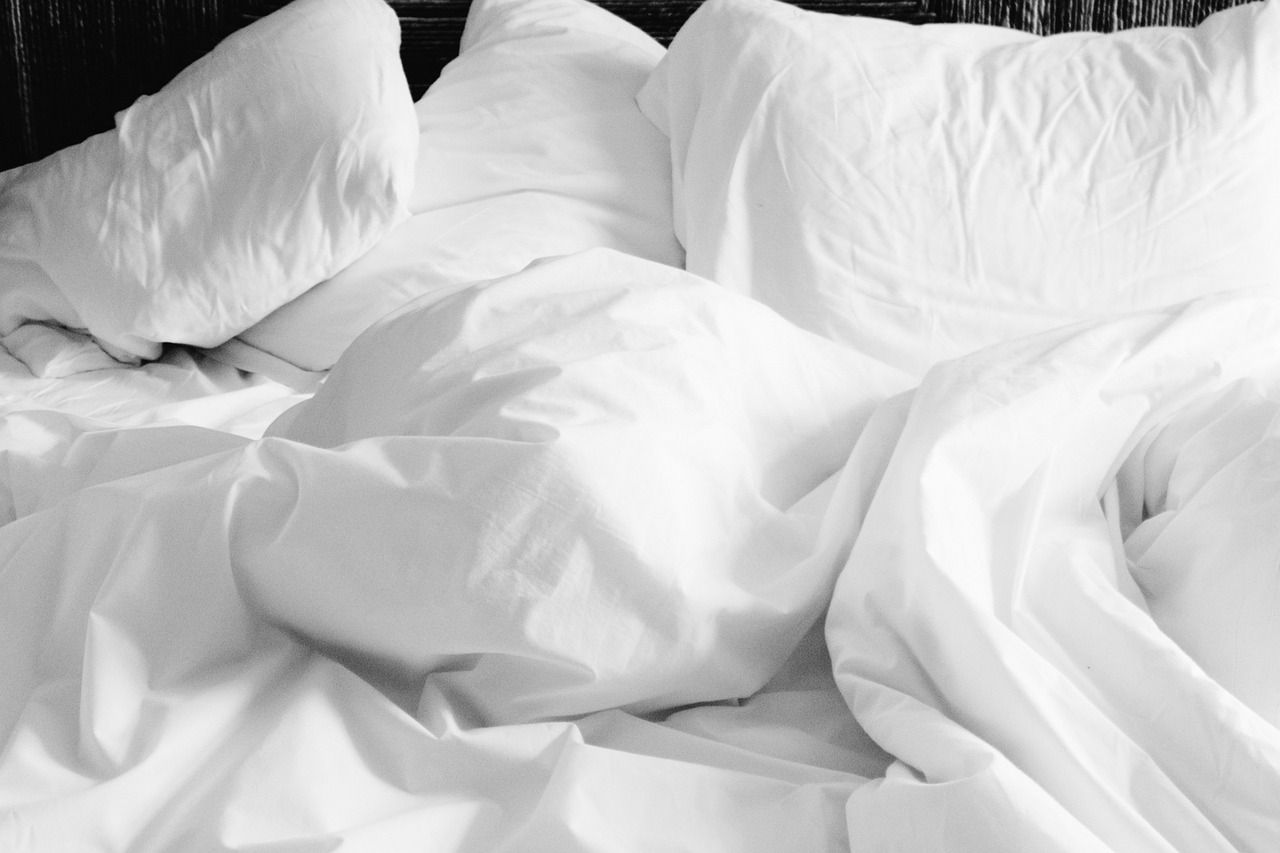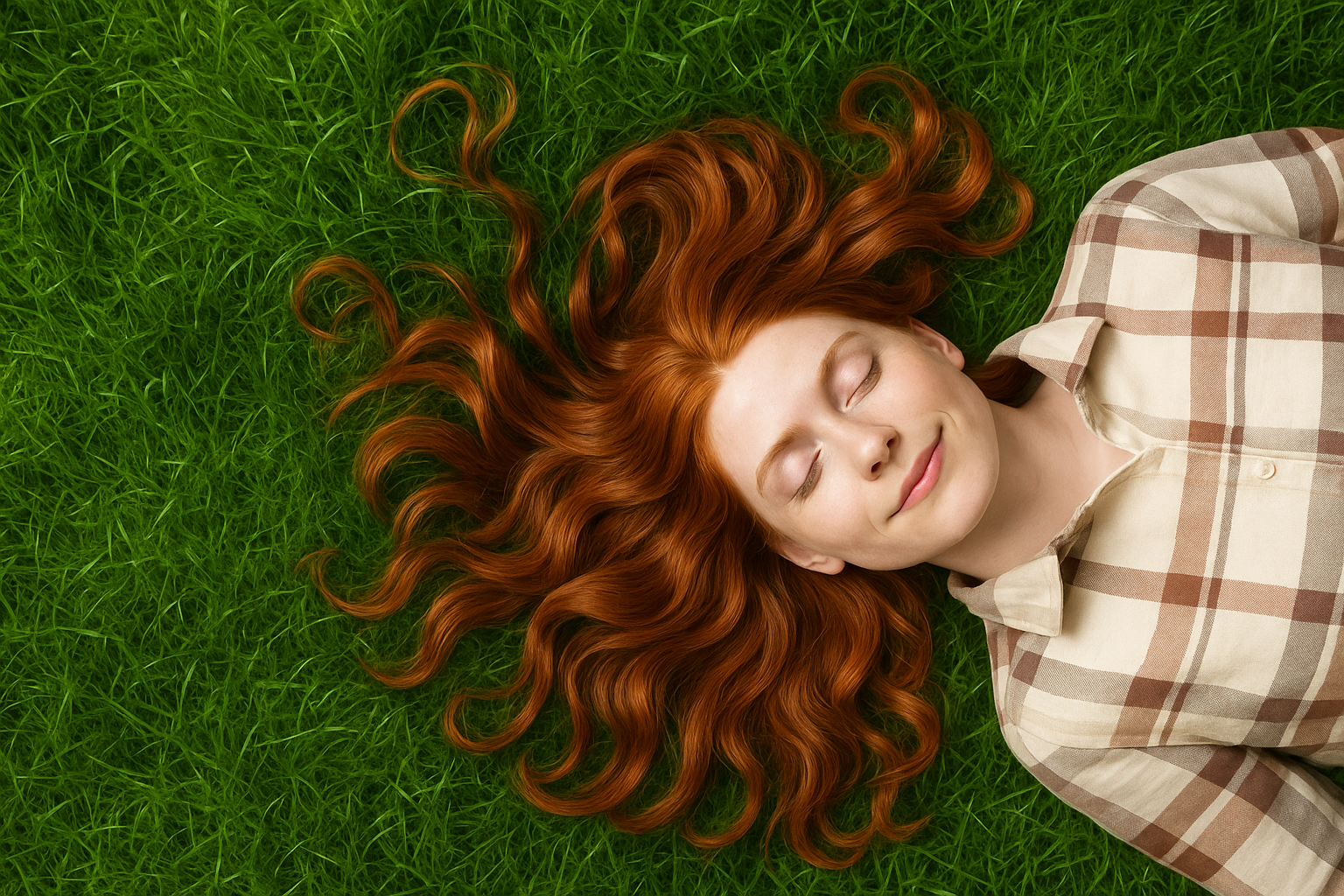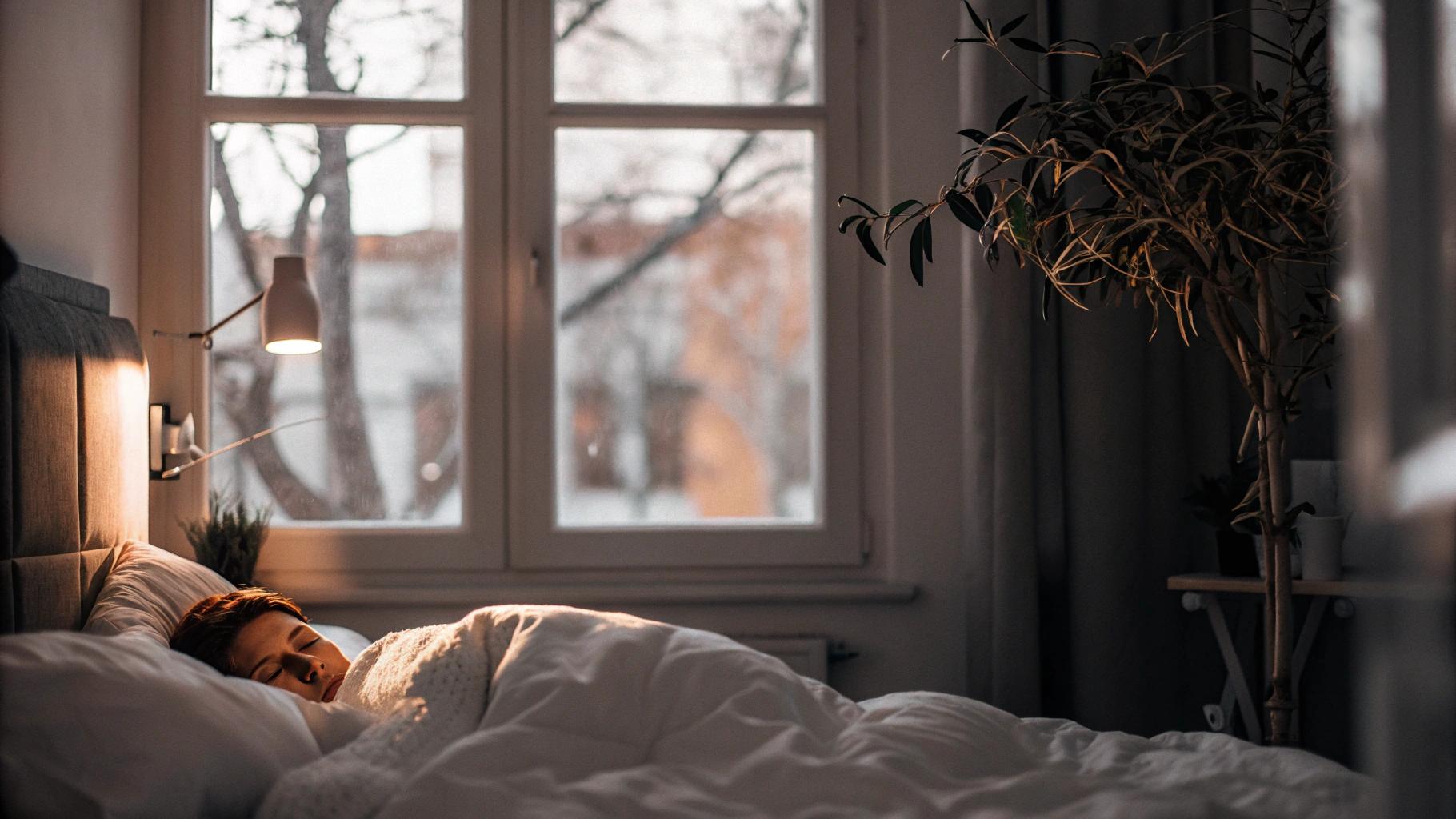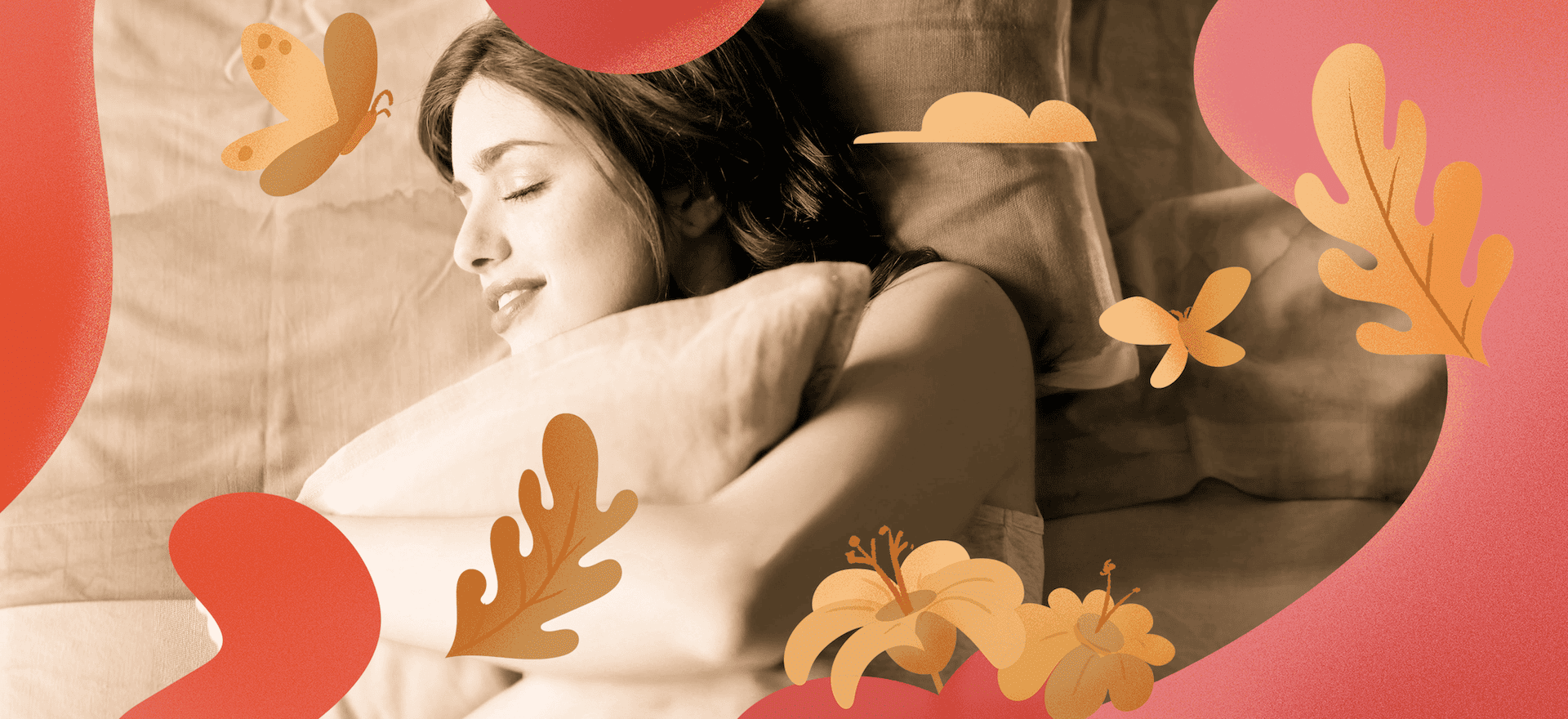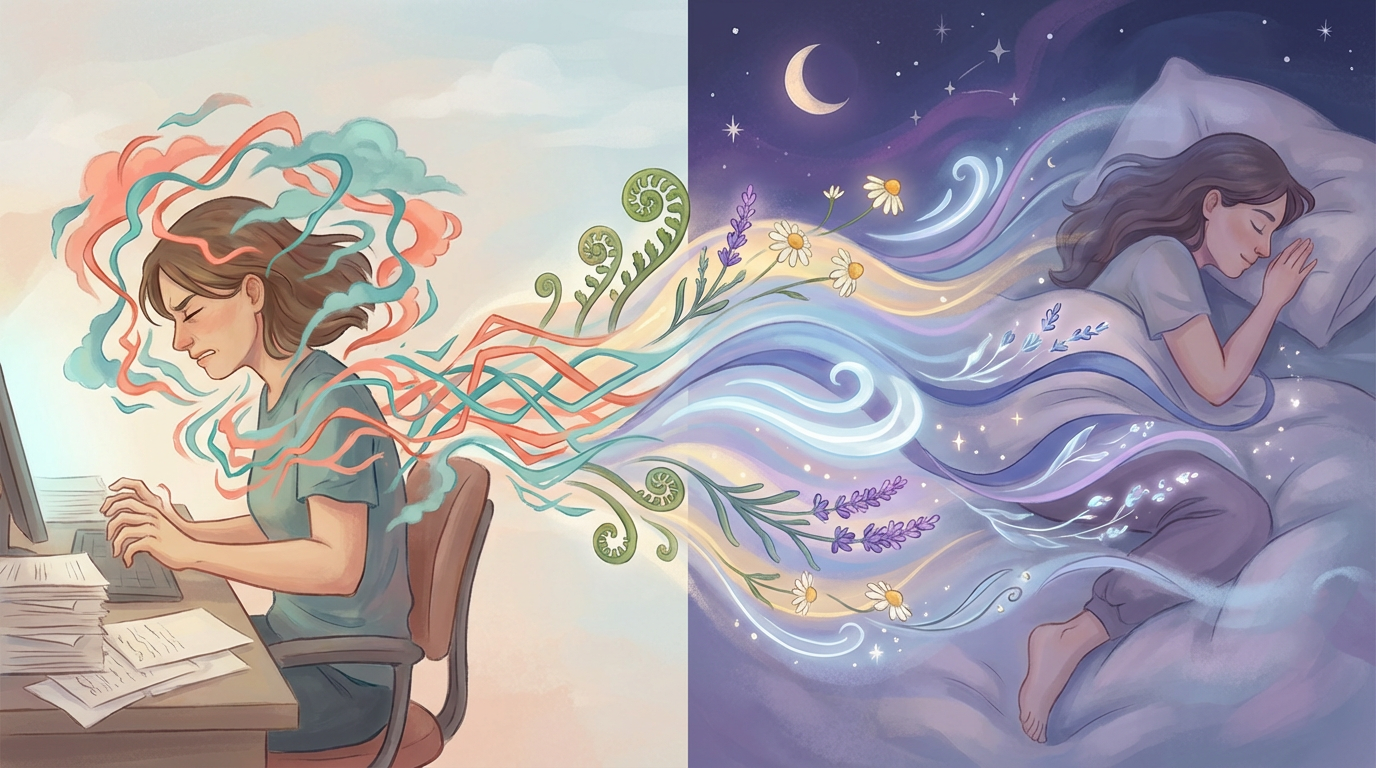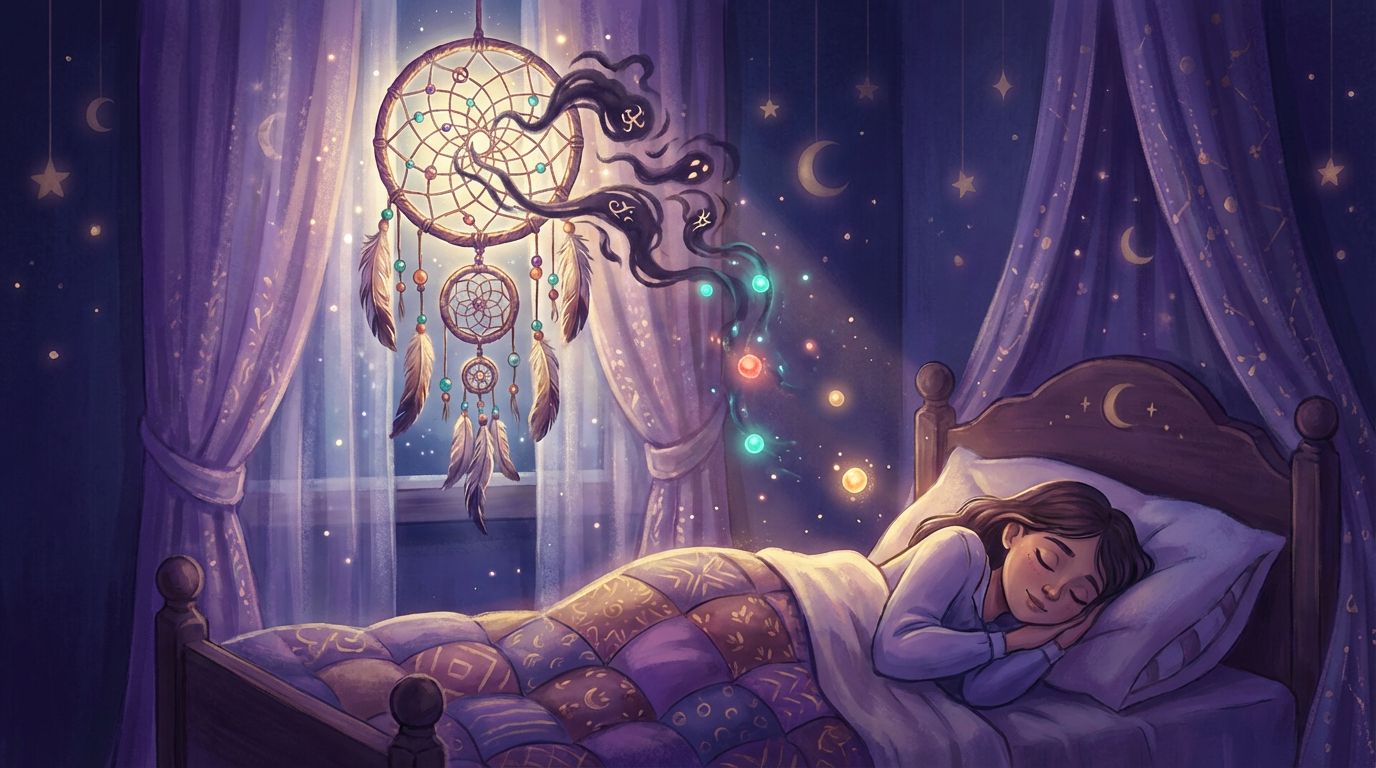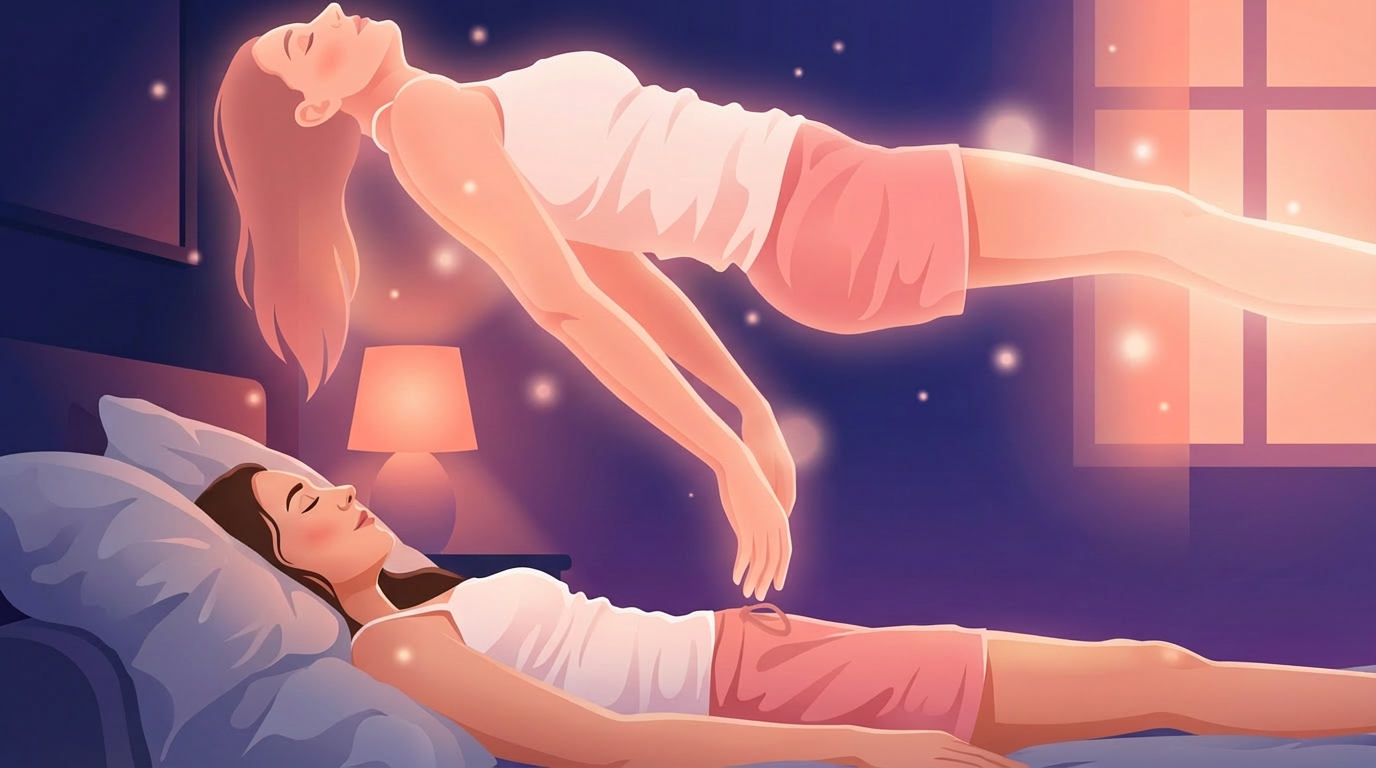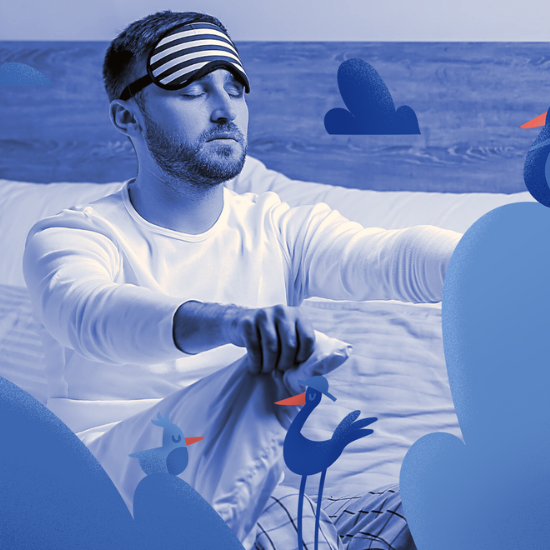
Sleepwalking Explained
You see it on TV and in the movies all the time. Someone gets out of bed and starts walking around, often with their eyes open but not seeing anything. It looks pretty funny when it happens to someone else. But if it happens to you, it's not so amusing. Sleepwalking can be pretty scary for you and your family members who may witness it.
Sleepwalking, also known as somnambulism, is an arousal disorder, meaning it occurs when you're in a state between sleep and wakefulness. It usually happens during the deep, slow-wave sleep in the first few hours of the night.
This post will look at sleepwalking, how it happens, and some ways to treat it.
What Is Sleepwalking?
Sleepwalking is considered a sleep disorder by the medical community. It's characterized by getting up and moving around while in a state of semi-consciousness. The American Academy of Sleep Medicine (AASM) estimates that 4% of adults and 17% of children sleepwalk at some point in their lives.
A regular sleep cycle has different stages where both our brains and bodies are affected. At the beginning of sleep, we're in a light state, making it easy to wake up. However, as we go further into sleep, it becomes increasingly difficult to awaken from the depths of slumber.
The deepest stage of sleep, called rapid eye movement (REM) sleep, is when we dream. Our eyes move rapidly back and forth while our breathing and heart rate err.
Sleepwalking occurs during the deepest stage of non-REM sleep. In this stage, our breathing is regular, but our muscles are relaxed. We're not easily awakened from non-REM deep sleep.
What Happens During Sleepwalking
Deep sleep means our brain is active, processing the day's events, retaining memories, and restoring energy to the body.
During sleepwalking episodes, the motor cortex controlling movement is alert, while the prefrontal cortex governing rational thought remains inactive. That's why sleepwalkers may do things that are unusual or nonsensical.
For example, sleepwalkers might get out of bed and start walking around. They may rearrange furniture, put on clothes, or leave the house--all while in a semi-conscious state and unaware of their actions.
Although sleepwalking is mostly safe, there are some risks associated with it. Most people wake up on their own and don't remember sleepwalking. However, people may hurt themselves if they walk into something or fall. They may also be in danger if they try to drive a car while sleepwalking or wander into a dangerous area.
Other symptoms of sleepwalking include sleep talking, bed wetting, confusion, and night sweats.
More Facts About Sleepwalking
Sleepwalking episodes usually last for a few minutes.
Sleepwalking episodes can last anywhere from a few minutes to upwards of half an hour, and how often they occur also differs from person to person.
Sleepwalking is most common in children, but it can also happen to adults.
Children with a family member that sleepwalks are more likely to do so. However, some children will eventually stop sleepwalking as they age. Adults tend to sleepwalk when under high-stress levels, if they're not getting enough sleep, or if they have certain medical illnesses.
Sleepwalking is more common in males than in females.
The difference is not very significant, but it has been observed that males are up to 3 times more likely to sleepwalk in adults than females. AASM also highlights that men display more violent behavior during sleepwalking episodes than women.
Sleepwalking can sometimes come with sleep terrors.
Sleep terrors can come with sleepwalking episodes. They're characterized by a feeling of terror or fear that may be accompanied by yelling, flailing, and kicking.


What Causes Sleepwalking?
The exact cause of sleepwalking is unknown. But there are some factors that may increase the risk of sleepwalking, including:
Family History
If someone in your family has a history of sleepwalking, you're more likely to sleepwalk. If both of your parents sleepwalked as children, you have a high likelihood of sleepwalking.
Sleep Deprivation
Not getting enough sleep can make you more likely to sleepwalk. This is especially true if you're already predisposed to sleepwalking.
Poor Sleep Hygiene
Poor sleep hygiene is a term used to describe habits that disrupt sleep. Poor sleep hygiene includes working long hours, using electronic devices, and drinking caffeine before bed.
Inconsistent Sleep Schedule
An irregular sleep schedule can also make you more likely to sleepwalk. This is because your body's circadian rhythms (the internal clock that regulates your sleep-wake cycle) can be disrupted.
Stress
Being under a lot of stress can trigger sleepwalking episodes. This is because stress can interfere with your sleep patterns and lead to serious health consequences and sleep deprivation.
Medical Conditions
There are certain medical conditions and sleep disorders that may increase the risk of sleepwalking, including:
- Attention deficit hyperactivity disorder (ADHD)
- Epilepsy
- Fever
- Heartburn
- Migraine headaches
- Narcolepsy
- Night terrors
- Obstructive sleep apnea
- Parasomnias
- Restless legs syndrome
Medication
Certain medications, such as sedatives and antidepressants, can cause sleepwalking.
Substance Abuse
Sleepwalking is also more common in people who abuse drugs or alcohol.
Dealing with Sleepwalking
While most sleepwalking incidents are nothing to worry about, there are times when they can be dangerous. To ensure everyone's safety, here are some things you can do if someone close to you is a sleepwalker:
Keep the Bedroom Clean and Free of Obstacles.
This will help to prevent any accidents.
Lock all Doors and Windows at Night.
Sleepwalkers may be tempted to go outside. Locking the doors and windows can help to prevent this from happening.
Don't Sleep in a Bunk Bed.
Sleepwalkers may risk falling out when sleeping in a bunk bed. Sleepwalkers need to be on the bottom bunk to reduce the risk of falling and injuring themselves. The best option is to sleep in a single bed on the ground.
Don't Sleep on the Top Floor of a Home.
If a sleepwalker tries to leave the house, it's important that they don't have to go down a flight of stairs.
Keep the Car Keys Out of Reach.
If a sleepwalker tries to leave in the car, it's important that they can't get the keys.
If you live with someone who sleepwalks, try to create a safe environment for the person. Remember, sleepwalkers, are often unaware of their surroundings and may not be able to recognize danger. Taking these precautions can help to prevent accidents.
Good Sleep and Rest: The Antidotes To Sleepwalking
If you're sleepwalking more often, getting more rest is important. This means setting aside enough sleep time and ensuring that your sleeping environment is conducive to good sleep.
Getting Better Sleep
The best way to avoid a sleepwalking episode is by getting enough rest, but medications and sleep aids are available if that's not possible. Sleep deprivation puts you at a higher risk for sleepwalking episodes, so always aim for 7-8 hours of sleep per night.
If you find yourself under stress, working to reduce your stress levels can be helpful. This may look like exercising, listening to relaxation techniques, or talking with a counselor. BetterSleep offers audio recordings of guided exercises to relax the listener and help them fall asleep. In addition, music and other calming sounds may improve sleep quality.
According to scientific research, mindfulness meditation (mindfulness-based stress reduction) has myriad benefits, including reducing stress and improving sleep. MBSR is a program that teaches you how to focus on the present moment and your breathing; in doing so, it helps you better manage stress and anxiety.
Dealing with Medical Conditions
If sleepwalking is a symptom of an underlying medical condition, treatment will involve the management of the existing condition. Medication, lifestyle changes, and other treatments may be necessary.
For some people, however, sleepwalking may indicate a more serious sleep disorder. Consult a doctor if sleepwalking episodes become frequent; they can help determine the cause and develop an effective treatment plan. Sleep disorders such as sleep apnea or restless legs syndrome often require specialized care to manage successfully.


Frequently Asked Questions (FAQs) About Sleepwalking
Why am I Suddenly Sleepwalking?
There are many potential causes of sleepwalking. It may result from stress, a medical condition, or a sleep disorder. If you're sleep deprived, your risk of sleepwalking also increases.
What Should I do if I See Someone Sleepwalking?
If the person is in a safe place and doesn't appear to be in danger, it's usually best to let them sleepwalk. However, if the person is in danger, you may need to wake them up.
How can I Prevent Sleepwalking?
Getting enough rest and reducing stress are the best ways to prevent sleepwalking. You may also want to create a safe environment for yourself or your loved ones by removing potential hazards from the bedroom and locking doors and windows at night.
Will I Hurt Myself Sleepwalking?
Most people don't hurt themselves when sleepwalking. However, there is a potential for injury if you sleepwalk into a dangerous situation. It's important to create a safe environment and to get enough rest to prevent sleepwalking episodes.
How Can I Tell if My Child is Sleepwalking?
Most children who sleepwalk are between the ages of 4 and 8. However, it can occur in children of any age. Talk to your doctor if you're concerned that your child is sleepwalking.
What are the Long-Term Effects of Sleepwalking?
There are no long-term effects of sleepwalking. It can be a short-term problem caused by stress or a sleep disorder. In most cases, it's not harmful and will go away independently. However, if you're concerned about sleepwalking, talk to your doctor. They can help you find the cause and get the treatment you need.


